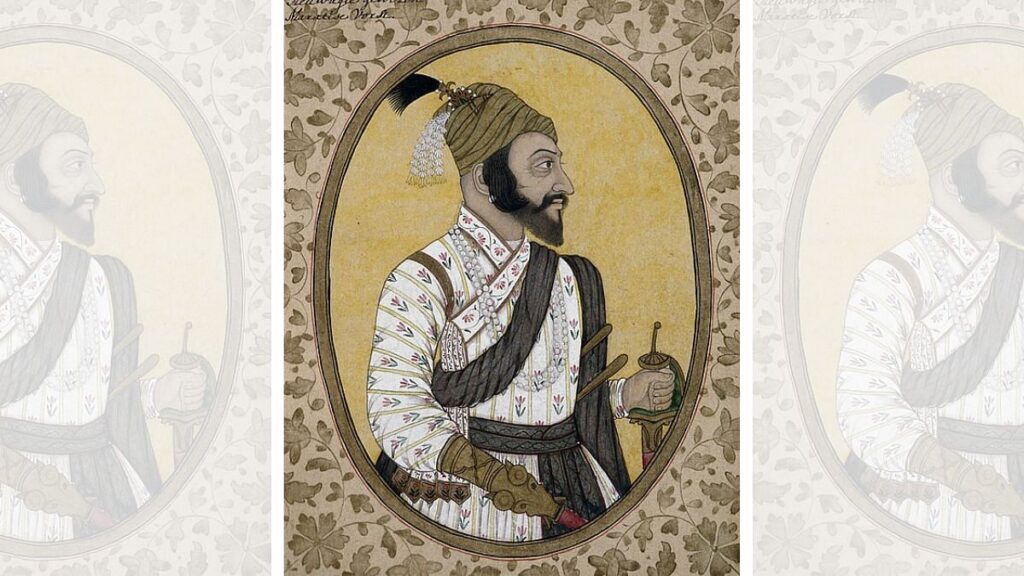New Delhi: The NCERT’s new Class 8 Social Science textbook, in a chapter called ‘The Rise of the Marathas’, compares a raid carried out by Shivaji on the Mughal enemy camp in the dead of the night to a “modern-day surgical strike”.
The book describes Shivaji, the founder of Maratha Empire, as a “strategist and true visionary” while introducing Babur, the founder of the Mughal Empire, as a “brutal and ruthless conqueror, slaughtering entire populations of cities”.
Referring to Maratha kings as rulers who “established sovereignty”, it says about Shivaji, “…within his lifetime, his exploits had become legendary across India and beyond”.
‘The Rise of the Marathas’ adds that Shivaji raided his enemy’s camp at night “with only a few” soldiers. “This daring raid resembles the modern-day surgical strike,” it says, with “surgical strike” highlighted in purple.
Another chapter, ‘Reshaping India’s Political Map’, says Babur “enslaved women” and erected “towers of skulls made from the slaughtered people of plundered cities” when he entered the Subcontinent after being “thrown out of Samarkand (modern-day Uzbekistan)”.
Initially, the Mughals and the Delhi Sultanate were part of the Class 7 social science curriculum. However, the NCERT has now replaced those chapters with new ones on the Magadha kingdom, the Mauryas, the Shungas, and the Sātavāhanas.
Now, it is the Class 8 social science textbook that introduces students to the Delhi Sultanate, the Mughals, and the Marathas. In the textbook, named ‘Exploring Society: India and Beyond’, the NCERT has added what it has called a ‘Note on some darker periods in history’, along with a disclaimer.
The note says, “Understanding the historical origin of cruel violence, abusive misrule, or misplaced ambitions of power is the best way to heal the past and build a future where, hopefully, they will have no place.”
“No one should be held responsible today for events of the past,” reads the disclaimer.
ThePrint reached NCERT Director Dinesh Prasad Saklani for comment through calls and texts. This report will be updated if and when a response is received.
Speaking to ThePrint, Irfan Habib, a historian of ancient and medieval India said history depended entirely on facts, not religion, and that the past could not be changed, just by removing parts of it from the syllabus.
Habib added that no Constitution existed at the time, so all rulers ruled by the sword. Calling the revisions a part of political strategies, Habib said, “Rajputs, for instance, were equally cruel. There is no need to see it through the prism of religion.”
Dynasties would not have survived if the rulers were not good strategists or swordsmen, he added.
“This is a faulty and farcical way of going about making changes,” Habib said, adding that the distortion of history is a way of turning history into mythology.
Also Read: Aurangzeb keeps haunting Maharashtra politics. This time, he can hurt Fadnavis’ governance
Shivaji was ‘careful’ not to attack religious places
The book claims Shivaji was always “careful” not to attack religious places and mentions a “retaliatory action” that involved Shivaji attacking Surat, which, it says, was a “great insult” to the might and prestige of the Mughal Empire.
In contrast, it describes the Sultanate period as one marked by political instability and the destruction of temples and seats of learning. During Alauddin Khilji’s conquests, “Hindu centres such as Srirangam, Madurai, Chidambaram, and possibly Rameshwaram” came under attack, the textbook says.
Discussing the Mughal Empire, the text says Akbar tried to intimidate the Rajputs during the Chittorgarh attack by proclaiming he had already occupied several “forts and towns belonging to the infidels” and “established Islam there”.
Akbar, once called ‘The Great Akbar’ in history textbooks, ruled with a “blend of brutality and tolerance”, the text says, adding: “Despite Akbar’s growing tolerance for different faiths, non-Muslims were kept in a minority in the higher echelons of the administration…”
‘Can’t selectively glorify or vilify historical figures’
Arvind Sinha, a retired history professor from Jawaharlal Nehru University, told ThePrint that history, as a discipline, should be rooted in objectivity, warning that “prejudice” not only distorts facts but also has a harmful influence on young minds.
“You cannot selectively glorify or vilify historical figures. For instance, Shivaji cannot be viewed as a hero in isolation, without acknowledging the historical context, including Aurangzeb,” he said, adding that rulers operated under different circumstances, something that needed to be understood, not judged.
He also drew parallels with Pakistani textbooks and their “ideological portrayals” that made thinking among students narrow.
“If you omit facts or twist them to suit a narrative, you are not teaching history, you are promoting propaganda,” he said, adding that the problem was not limited to any one political party. “Ideological influence, whether Marxist or Right-wing, has no place in History textbooks.”
(Edited by Madhurita Goswami)
Also Read: Aurangzeb is politics, not history. Indian Muslims must bury his ghost

